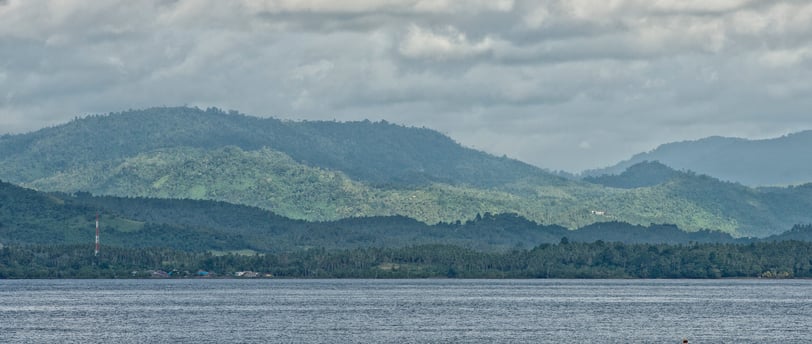Subic Bay and Olongapo City
A brief introduction to the history of Subic Bay and Olongapo City
Thomas P Cook
9/18/20233 min read


A Brief Introduction to the:
History of Subic Bay and Olongapo City, Zambales Philippines
Subic Bay, located in Olongapo City within the province of Zambales in the Philippines, holds a rich history and vibrant culture that has shaped its people into resilient individuals. Over the years, this region has faced numerous challenges, including economic hardships, corruption, natural disasters such as floods and volcanic eruptions, drug-related issues, and violence. Additionally, due to its proximity to a former United States naval base, Subic Bay has witnessed a unique relationship between locals and the American military presence. Despite these adversities, the people of Subic Bay have displayed remarkable strength in preserving their heritage while embracing change.
Subic Bay has experienced its fair share of economic setbacks throughout history. The closure of the U.S. Naval Base Subic Bay in 1992 resulted in massive job losses for thousands of locals dependent on it for employment opportunities. This sudden decline led to high unemployment rates and poverty levels within the city.
However, amidst these difficulties emerged an opportunity for growth. The government transformed the former naval base into a free port zone called Subic Bay Freeport Zone (SBFZ). This development attracted local and foreign investors, leading to business establishments ranging from manufacturing to tourism-related ventures.
The issue of corruption has plagued many developing countries, including the Philippines at large. In recent years, efforts have been underway by various government agencies to combat crime within Subic Bay through increased transparency measures.
Despite these challenges related to corruption among some officials or business people operating within SBFZ or Olongapo City, countless honest individuals work tirelessly towards uplifting their community while fostering an environment built on integrity.
Situated along a volatile tectonic plate boundary known as "The Pacific Ring of Fire," Subic Bay has faced its fair share of natural disasters. Floods resulting from heavy rains and typhoons have, at times, caused devastation in the region. Additionally, the eruption of nearby Mount Pinatubo in 1991 unleashed immense destruction upon the area.
The people of Subic Bay have shown remarkable resilience in rebuilding their lives after these calamities. Community efforts and government assistance reconstructed affected areas, and ongoing disaster preparedness measures are implemented to mitigate future risks.
Like many other regions worldwide, Subic Bay has not been immune to drug-related issues and violence. The proliferation of illegal drugs has led to social problems within communities, affecting families and individuals alike.
Efforts by both local authorities and concerned citizens have been made to address these concerns head-on through campaigns promoting awareness, rehabilitation programs for drug dependents, and increased law enforcement activities aimed at curbing criminal activities.
The presence of a former United States naval base within Subic Bay has significantly influenced its residents' culture and daily life. Historically, local and U.S. military personnel relationships have evolved from initial skepticism to mutual understanding.
Many locals found employment opportunities working within or alongside U.S. military establishments. This interaction fostered cultural exchanges between Filipinos and Americans, leading to an appreciation for each other's traditions while also creating lasting friendships.
Subic Bay's history is a testament to the resilience displayed by its people in overcoming various challenges such as economic hardships, corruption, natural disasters like floods or volcanic eruptions, drug-related issues, and violence, as well as maintaining a unique relationship with the United States military presence within their midst.
This region's economy continues to evolve as it transforms into a thriving freeport zone, attracting investments from local entrepreneurs and foreign entities. The people's determination towards progress inspires future generations who will inherit this rich heritage.
As Subic Bay moves forward, it is crucial to remember the lessons learned from its past struggles. By embracing change while preserving cultural traditions, promoting transparency and integrity, and addressing social issues head-on, this region will continue to thrive as a shining example of resilience and triumph over adversity.
